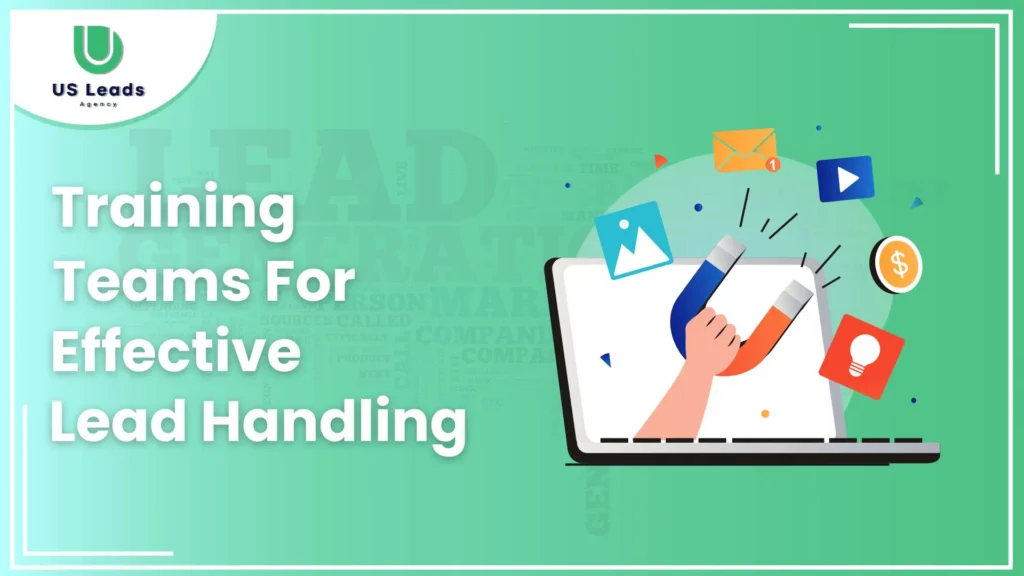
Effective lead handling is the backbone of success in final expense insurance sales. It’s not just about converting leads; it’s about building trust, addressing emotional concerns, and creating lasting client relationships. Properly trained teams can significantly boost conversions, improve client satisfaction, and enhance long-term profitability.
This guide provides actionable steps to train teams for final expense lead handling, ensuring they are equipped to meet the unique demands of this market.
Key Takeaways:
- Empathy matters: Approach clients with emotional and financial sensitivity.
- Knowledge builds trust: Train teams with in-depth product information.
- Leverage technology: Use CRM and analytics tools for efficient lead management.
- Focus on growth: Regular training and feedback keep teams sharp.
- Motivate for success: Offer incentives and career development opportunities.
Table of Contents
What Is Final Expense Lead Handling?
Final Expense Lead Handling refers to managing, nurturing, and converting leads for final expense insurance, a life insurance product covering funeral costs, medical bills, and other end-of-life expenses. This process involves creating a customer-focused system that ensures leads receive the information and support needed to make informed decisions.
Why Is Effective Lead Handling Important?
- Boosts Conversions: Streamlined processes increase policy sign-ups.
- Builds Trust: Transparent communication fosters stronger relationships.
- Enhances Retention: Satisfied clients are more likely to stay loyal and provide referrals.
Steps To Train Teams For Final Expense Lead Handling:
1. Understand The Final Expense Market:
Educate teams about the market, including:
- Target audience: Seniors aged 50–85 seeking affordable life insurance.
- Key concerns: Budget limitations, trust in the insurer, and quick policy approval.
- Emotional factors: Sensitivity to clients’ financial and emotional situations.
2. Develop a Customer-Centric Mindset:
Teach empathy and active listening:
- Approach clients professionally and with sensitivity.
- Listen to concerns without interrupting.
- Personalize interactions to address specific client needs.
3. Master Product Knowledge:
Equip your team with detailed knowledge of policies:
- Coverage benefits and options.
- Premium structures and payment flexibility.
- Unique selling points that set your policies apart.
4. Enhance Communication Skills:
Focus on clear and impactful communication:
- Use scripts for common scenarios and objection handling.
- Simplify messaging to ensure client understanding.
- Stress the importance of timely and professional follow-ups.
5. Leverage Technology and Tools:
Train teams on essential tools:
- CRM systems: Track leads, manage follow-ups, and organize client data.
- Dialer software: Automate call handling and boost productivity.
- Analytics tools: Assess lead quality and optimize targeting strategies.
6. Practice Role-Playing Scenarios:
Simulate real-world interactions to build confidence:
- Practice pitching final expense policies.
- Respond to client objections and concerns.
- Handle challenging scenarios with poise.
7. Focus on Compliance and Ethics:
Ensure teams understand legal and ethical standards:
- Avoid high-pressure tactics and misrepresentation.
- Comply with regulations like HIPAA and DNC rules.
- Accurately represent policy details to maintain trust.
8. Monitor and Improve Performance:
Continuous improvement is key:
- Track metrics like conversion rates and client feedback.
- Conduct regular workshops to address knowledge gaps.
- Encourage team feedback to refine strategies and address challenges.
9. Motivate and Retain Your Team:
Engage your team through:
- Performance incentives and recognition.
- Career development and growth opportunities.
- Building a supportive and collaborative team culture.
Conclusion – Train Teams For Final Expense Lead Handling:
Training teams for effective final expense lead handling is vital to achieving success in the competitive insurance market. By focusing on empathy, product knowledge, communication skills, and continuous learning, you can empower your team to convert more leads while building strong client relationships. A motivated and well-trained team is your greatest asset in maximizing sales and client satisfaction.
FAQs:
How can role-playing improve lead handling?
Role-playing allows teams to practice real scenarios, handle objections, and build confidence for real client interactions.
What should teams avoid during lead handling?
Teams should avoid high-pressure tactics, policy misrepresentation, and failing to comply with legal standards.
How can organizations keep their teams motivated?
Set achievable goals, reward performance, provide growth opportunities, and foster a positive team culture.
